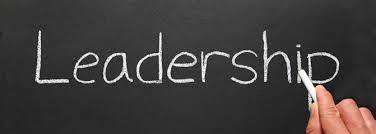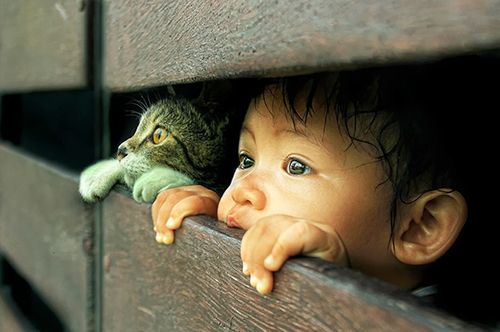We define leadership in many ways, many forms. But to what end? This is the defining question as we quest for a new era in human beings and human doings - a new age, a Human Age.
Education is evolving. It always has. It always will. Yet how it evolves and to what end it serves will be derived in no small measure by how our leaders in education lead, and how they by this very nature prepare those who will someday lead us all.
As one who has witnessed educational leadership across the global landscape, the content of what makes for a good leader - of schools, of universities, of nations - lay in the intent. What is the intention of a good education? And if education is to serve the greater end in the evolution of the state, and its sustainability, then it begs the question of what does it mean to be an evolved, developed state?
In Asia these days, the race to ascend the PISA rankings has given rise to one-dimensionalism. Education systems in China, Korea, Japan, even Singapore have been effectively designed as a means of acquiring knowledge through siloed activity. The building of knowledge banks within the individual and society is effectively banking on the notion that knowledge alone will win the day. Yet knowledge unto itself is a dead end, unless it is brought into working relationship with those conditions, circumstances, peoples - nations, as well - that require more than simply the knowledge to transcend current times and challenges. We require the ability to relate this knowledge to those very issues to be addressed - with, by and through one another.
Another way to put this: we are in it together, however one would care to define 'it.'
Leaders in education, regardless of the context of country, culture need to lead us beyond merely the development of basic skills and banking of knowledge, with our demonstration of such reduced to competency in examination performance. Leaders in education need to lead us beyond where we are and to where we are heading as humanity. And this, I again refer to as the Human Age.
Humanity has a greater purpose. Greater than working the fields. Greater than manning machinery. Greater than informing and being informed through an age that caters to such.
Humanity has a greater purpose, one where content and intent are aligned; a world redesigned to usher in a new age of solidarity, compassion, creation and ascension - of each and every one who resides beneath the sun - is realized. All inclusive. No exceptions.
We require leadership in our schools, universities, institutions of all kinds, nations in all states of development; leadership that demonstrates the courage required to raise both consciousness and activity to a level unknown but undeniable to the human condition. And by courage I mean just that, the true origin of the word, le coeur or 'the heart.' For intellectualism without intelligence - the acquisition of knowledge without the expansion of consciousness - is, again, a dead end. And societies on a path to such end fail in a key intention of progress as measured in any form. That is, the sustainability of such.
Leadership in education must demonstrate the courage to stand firm in the principles that underlie any education worthy of the time invested, by those who educate and those who are the beneficiaries thereof.
Education must serve as a foundation for awareness, growth and development of the individual.
Education must serve as a public good, available to all so that all will be available to the nation - and, more importantly, the nation of nations we know as our global society.
Education must encourage courage, innovate to elevate, and lead with both head and heart so that those who emerge from our world's institutions of learning will have learned both matter and meaning of life, and how one may pursue happiness with the possibility of actually finding it.
And education must serve in bringing the infinite vastness of the unknown within range of the finite. This will allow us as the human race infinite possibility in raising the quality of living across a planet seeded with potential, and provide sustainable solutions beyond the economic and into the universality of a truly developed society by all measures.
Leadership may be defined in many ways. Yet the need for leadership as virtuous as we are vigilant is undeniable. And striking a healthy balance between the acquisition of knowledge and the expansion of consciousness must rank supreme in both content and intent, whether educating in the schools of Shanghai, the classrooms of California, or the colleges at Cambridge.
Nations will have their agendas. And they must be served, through education as the foundation upon which societies are conceived, constructed.
But to what end? To what end indeed?
We await your lead.
David Scott Clegg is the author of the award-winning novel The Longest Distance. He is the Managing Director of The HEAD Foundation, a global education think tank; and Founder of UNITE Education.



